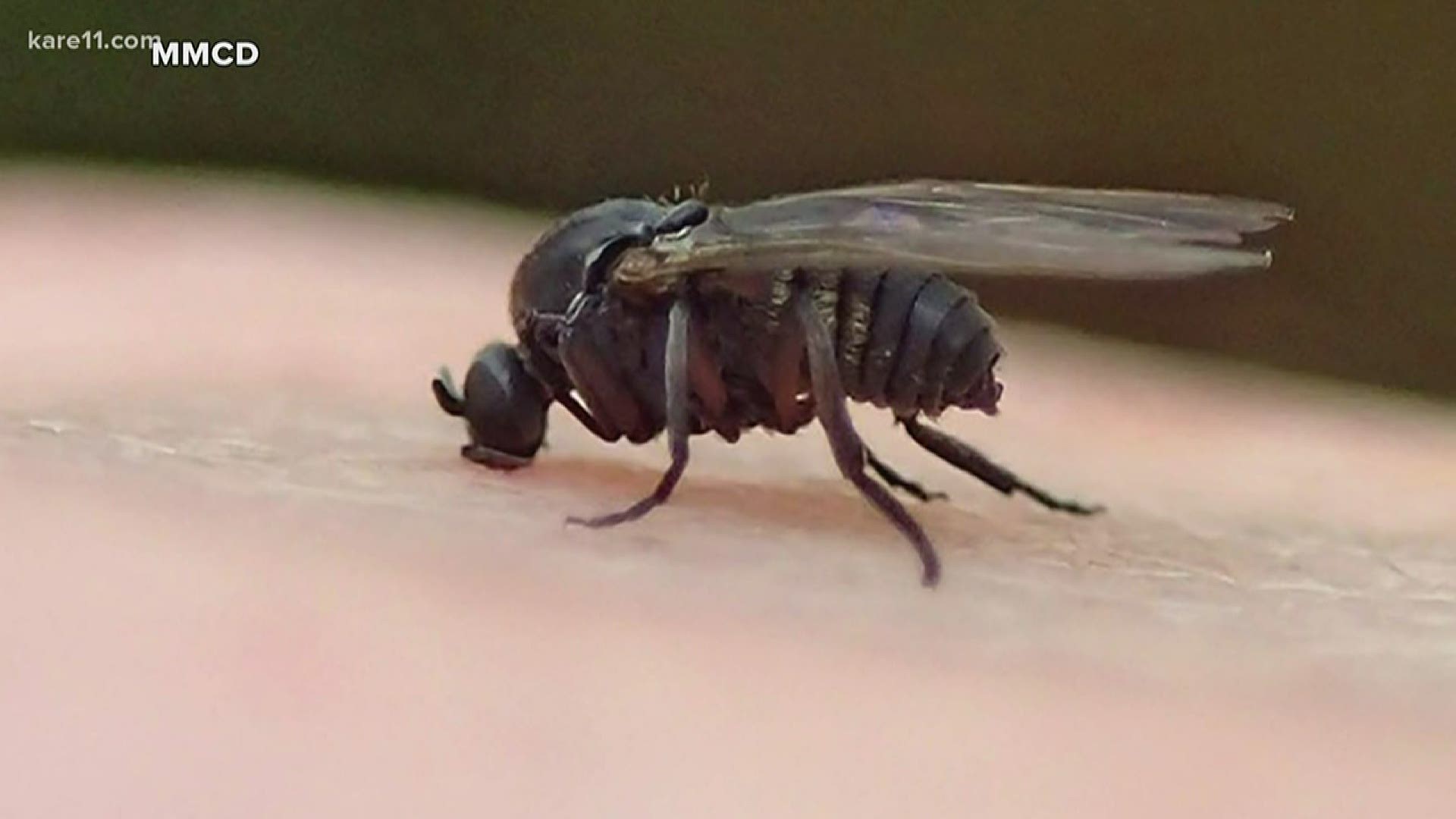MINNEAPOLIS — If you've been noticing a lot more pesky, biting, black flies this spring, you're not alone.
"This is just a different situation than we've normally seen. It's [usually] not this many this early," said Alex Carlson, public affairs coordinator for the Metropolitan Mosquito Control District.
Carlson says the flies are a species named simulium tuberosum. They're more common in northern Minnesota, and usually not frequently found in the Twin Cities. But this year has been different.
"We really haven't seen it over the past couple of years, but this year it appears to be what's really prevalent, and really affecting people," Carlson said.
That's because the species is more aggressive toward people than other types of black flies. Carlson says their bite is harsher and can leave more of a welt.
"This species, in order to get to the blood, they kind of gnaw at their host until they get the blood to the surface," Carlson said. "Then they drink the blood once it's at the surface. So the marks can look really bad. They can create some pretty nasty looking welts."


The MMCD isn't sure yet why this type of black fly is in the Twin Cities this spring. They're currently trapping them and gathering information to find out where the flies are most prevalent in the metro.
"The only thing we can think of is the temperature just allowed them to hatch a bit earlier," Carlson said. "This is a small stream species. So we started treating the rivers already, but we haven't done as much treatment for the small streams. So it could be they're just coming out of the streams earlier than we were anticipating."
The MMCD has crews out on Minnehaha Creek, which Carlson says is one of the places where they're getting a lot of complaints about the bugs. He says they've gotten complaints from all over the Twin Cities, but especially from places in the southwest metro.
We're stuck with them for now. Carlson says once the flies are adults, nothing can be done to get rid of them.
"They rest high up in canopies, they spread out," he said. They're not like mosquitoes where you can kind of figure out where they are and target them. These are really hard to control."
However, Carlson says these are a spring species and should die out in a few weeks.
Meanwhile, he says while bug spray with DEET can help keep the flies away, its typically not as effective for black flies as it is for mosquitoes.
"Other than that, the best thing you can do is cover up. Especially your head and neck," he said.
Carlson also suggest avoiding wearing artificial scents and going outside when the flies are less active, which is the early morning and evening.
As for pets, when Belinda Jensen's puppy got bitten, she put real vanilla extract on him, which she says have kept the flies away.
The Metropolitan Mosquito Control District says there is no evidence that black flies, mosquitoes, or ticks can carry or transmit coronavirus.

